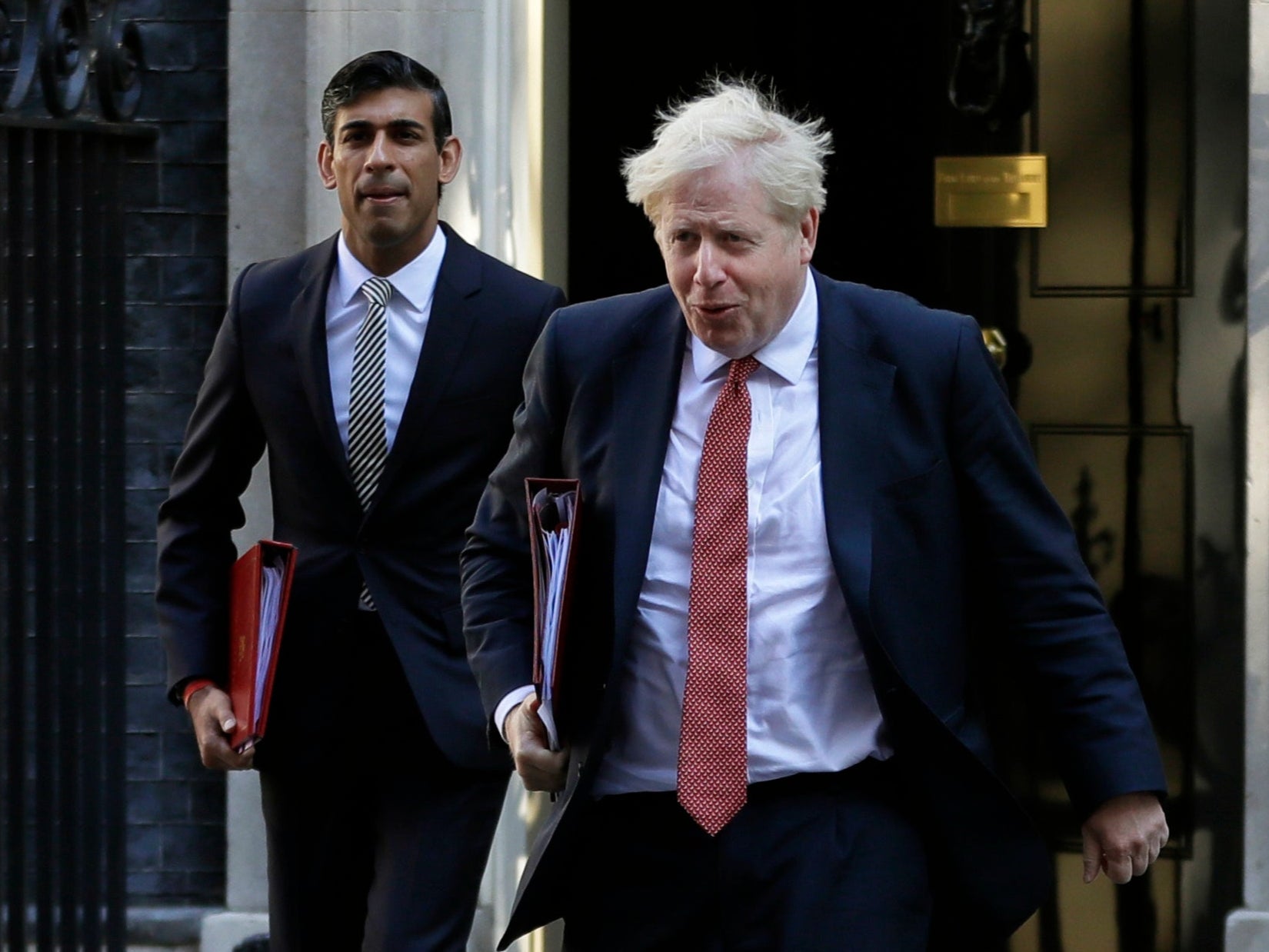Rough waters ahead for Johnson and Sunak as parliament returns to ‘perfect storm’ of political problems
Broken promises, tax hikes, benefit cuts and Brexit rows are in store, says Andrew Woodcock


Having navigated the perilous seas of Brexit and Covid and emerged with the ship of government battered and bedraggled but still intact, Boris Johnson and Rishi Sunak might be forgiven for feeling they are entitled to some calmer waters as parliament returns on Monday.
But if ever a period in politics deserved the description “perfect storm”, the coming weeks may be that time.
Within days of the return to Westminster, the prime minister and chancellor are set to tear up two central promises from their 2019 manifesto, in a move that could see charges of betrayal pursue them for the remainder of their time in office.
They face probable backbench revolts over reforms to the UK’s electoral system which have been branded “undemocratic” by critics, and a shake-up of funding for social care which some Tories regard as socialism by stealth.
And pencilled in for the end of the month is a quartet of potentially seismic deadlines that will simultaneously see the furlough scheme end, benefits slashed for 6 million households, new Brexit bureaucracy on food and animal product imports from the EU and the end of a three-month truce in Northern Ireland’s “sausage wars”.
On top of all this, Sunak must prepare an autumn spending review that will set out how the government will pay the £300bn bill for the Covid-19 pandemic so far.
The next few weeks will test the resilience of Johnson’s popularity with voters and with his own party to its utmost, with the next election potentially little more than 18 months away.
The first storm to hit the government will be one Johnson can feel confident of being able to weather, as his Elections Bill has its second reading in the Commons on Tuesday. Although plans for voter ID and political control of the up-to-now independent Electoral Commission have sparked outrage among civil rights groups, they are not subjects likely to provoke the kind of revolt among Tory backbenchers that would worry the prime minister.
The same cannot be said of other announcements expected this week.
Plans to hike national insurance contributions by 1 per cent in order to deliver a payments cap that would ensure no elderly person has to sell their home to pay for social care have been met with fury on Tory backbenchers.
Not only do they break the manifesto promise not to increase rates of the three main taxes over the course of this parliament, they are also regarded as politically toxic for many MPs. The spectacle of a Conservative government asking low-paid workers in rented flats to pay more tax in order to ensure that elderly millionaires are able to pass on their homes to their children when they die is enough to give a Tory MP in a newly-won red wall seat in the north or midlands palpitations.
Coupled with that, the supposedly sacrosanct “triple lock” for state pensions – which sees payments rise in line with the highest of earnings, prices or 2.5 per cent – looks certain to be breached in response to a statistical anomaly thrown up by Covid. Avoiding the 8 per cent rise that would result from matching swiftly rising post-lockdown pay might make sense to economists. But Tory MPs fear it will be resented by a group of voters who have so far remained loyal to the party, and who will suspect that once broken, the lock will never be reinstated.
Conservative nerves will be tested to the limit as the end of the month approaches, with ministers sticking to their guns on the withdrawal of both the furlough scheme and the £20 weekly uplift to universal credit introduced to ease the impact of Covid lockdowns on low-income households.
While the removal of the UC uplift will save Sunak £6bn a year, charities predict it will force more than 400,000 children into poverty. And it comes at the same time as a wave of redundancies expected with the final withdrawal of state support for wages of employees unable to work because of coronavirus restrictions.
The introduction of new controls on EU imports on 1 October is likely to further disrupt supply chains already buckling under the strain of Brexit paperwork and a 100,000 lorry driver shortfall, adding to pressures that some retailers predict will mean shortages of food and gifts this Christmas.
And ongoing rancour over Johnson’s Brexit deal will be revived in Northern Ireland, where a ban on shipments of chilled meats from the British mainland agreed by the prime minister in 2019 is also due to be implemented on 1 October.
One chink of light for Sunak as he prepares his 27 October spending review is the prospect of a £25bn windfall which could allow him to maintain public spending on repairing the damage done by coronavirus.
Economic think tanks believe that is the amount by which the Office for Budget Responsibility will be able to trim its forecast of long-term scarring to the UK economy from the pandemic.
But while welcome to the chancellor, Johnson’s government will need more than that fair wind to steer its way to a safe haven through the rough political waters ahead.
Join our commenting forum
Join thought-provoking conversations, follow other Independent readers and see their replies
Comments